Philips Hue Gradient Signe Floor Lamp review
A tall, minimalist and versatile bar of color-changing smart light
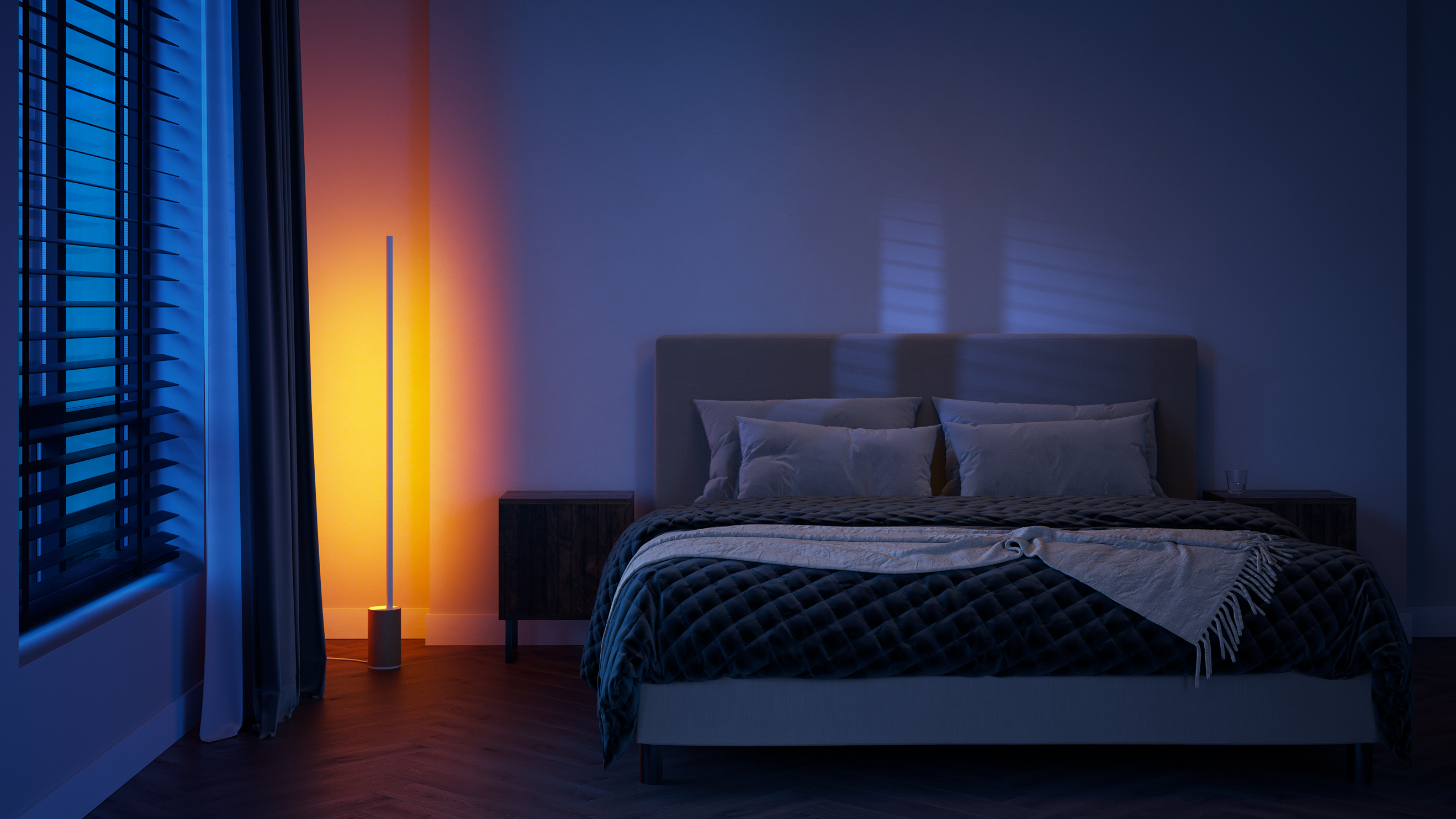
If you've got large rooms in your home that lean toward minimalism, then the Philips Hue Gradient Signe Floor Lamp will work a treat for you. It's a statement, color-changing smart lamp with plenty of versatility baked in, from mood lighting environments to adding visual excitement while watching movies, and on to waking you up each morning naturally as the ultimate wake-up light. However, its aesthetic, proportions and price mean that it won't be for everyone.
-
+
The oak base variant looks classy
-
+
Powerful light bar with gradient light zones
-
+
Versatile usage cases
-
+
Statement object
-
+
Very simple to set up and get working
-
-
It's tall and really needs some good wall space to work best
-
-
It's also rather expensive
-
-
On thick carpet it doesn't feel well planted
-
-
Will it work with your home's aesthetic?
Why you can trust T3

T3 is a massive proponent of smart home lighting and recommends the best smart bulbs for people to buy as a result. We think every home should feature smart lighting as it is a great way to spark joy and bring your individual character to your residence.
And, in the smart lighting market, there is one brand that sits atop the rest – Philips Hue. As we note in our Philips Hue review, it is the "most comprehensive smart light range out there, covering bulbs, lamps, and strip lighting to suit almost every need".
Right here we have Philips Hue's latest offering in lamps, the Philips Hue Gradient Signe Floor Lamp, and I, as T3's resident smart lighting expert, have gone hands and eyes-on for the past week in order to test it out.
In my Philips Hue Gradient Signe Floor Lamp review I will hopefully communicate what this smart lighting lamp offers, as well as if it will be a suitable match for your smart home. Let's get stuck in.
Philips Hue Gradient Signe Floor Lamp review: price and release date
The Philips Hue Gradient Signe Floor Lamp release date is now, with the product available to buy in its white, black and oak base variants from the official Philips Hue UK store and Philips Hue US store, as well as numerous third-party retailers such as Amazon.
The Philips Hue Gradient Signe Floor Lamp price starts at £279.99 for the white and black base colorway models in the UK, and then rises to £299.99 for the oak base variant. In the US, the lamp starts at $329.99 for the white and black, and then rises to $349.99 for the oak.
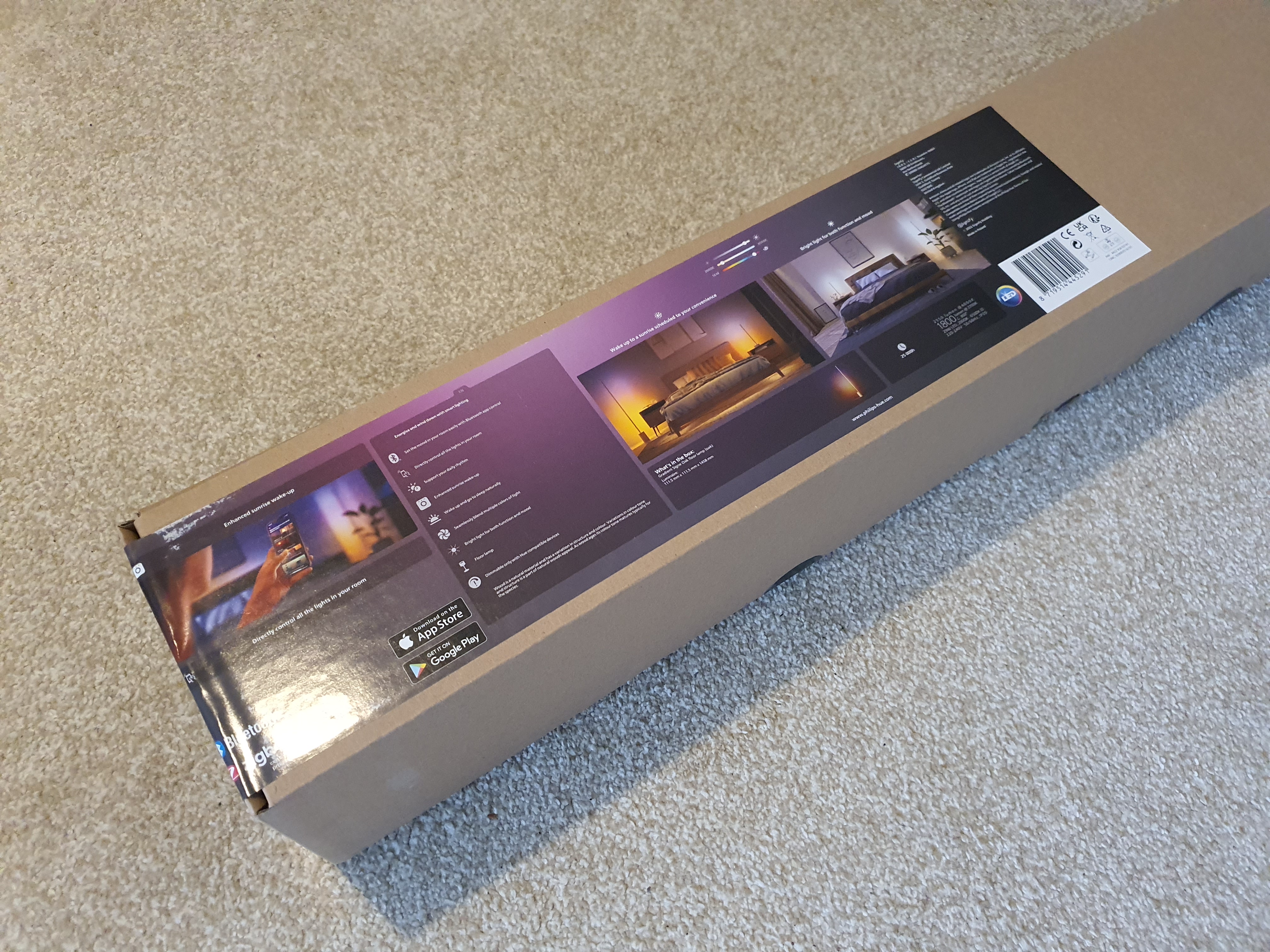
The Philips Hue Gradient Signe Floor Lamp comes in a long thin cardboard box.
Philips Hue Gradient Signe Floor Lamp review: design and setup
The Philips Hue Gradient Signe Floor Lamp, which as you would expect for a product that measures in at 145.8cm in height, comes in a tall, thin cardboard box.
Open that box and you are presented with the lamp itself, which looks like a super large white lightsaber connected to a cylindrical base.
The unit I was sent for testing was the 'Oak' variant, meaning the cylindrical base boasted a classy wood finish. 'White' and 'Black' bases are also available.
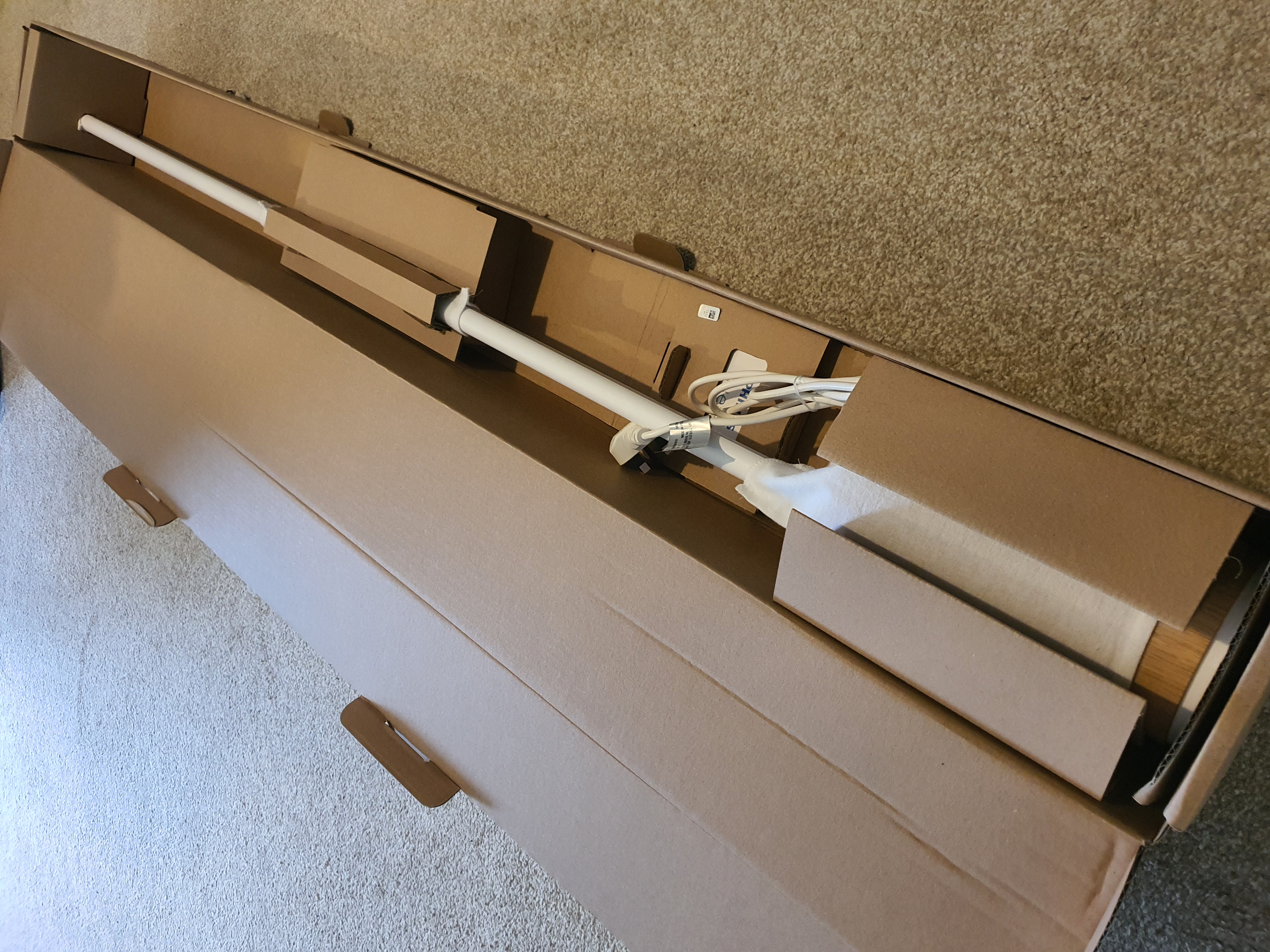
The Philips Hue Gradient Signe Floor Lamp looks like a large white lightsaber when you first open its box.
Take the Philips Hue Gradient Signe Floor Lamp out of the box and, aside from a - fixed in place - power cable, there is nothing else but a small selection of paperwork and a get-started manual in there.
Really, though, as anyone who has used/got any sort of Philips Hue lighting will know, this paperwork isn't really needed. To get this lamp working I simply plugged it in, opened the Philips Hue app on my smartphone, and then selected the add new lights option.
The Gradient Signe was then automatically found and I could then immediately proceed to name it, assign it to a lighting zone in my home, and then set the colors and / or scene I wanted it to display. Simple is an understatement – this is how easy setup of any smart home device should be.
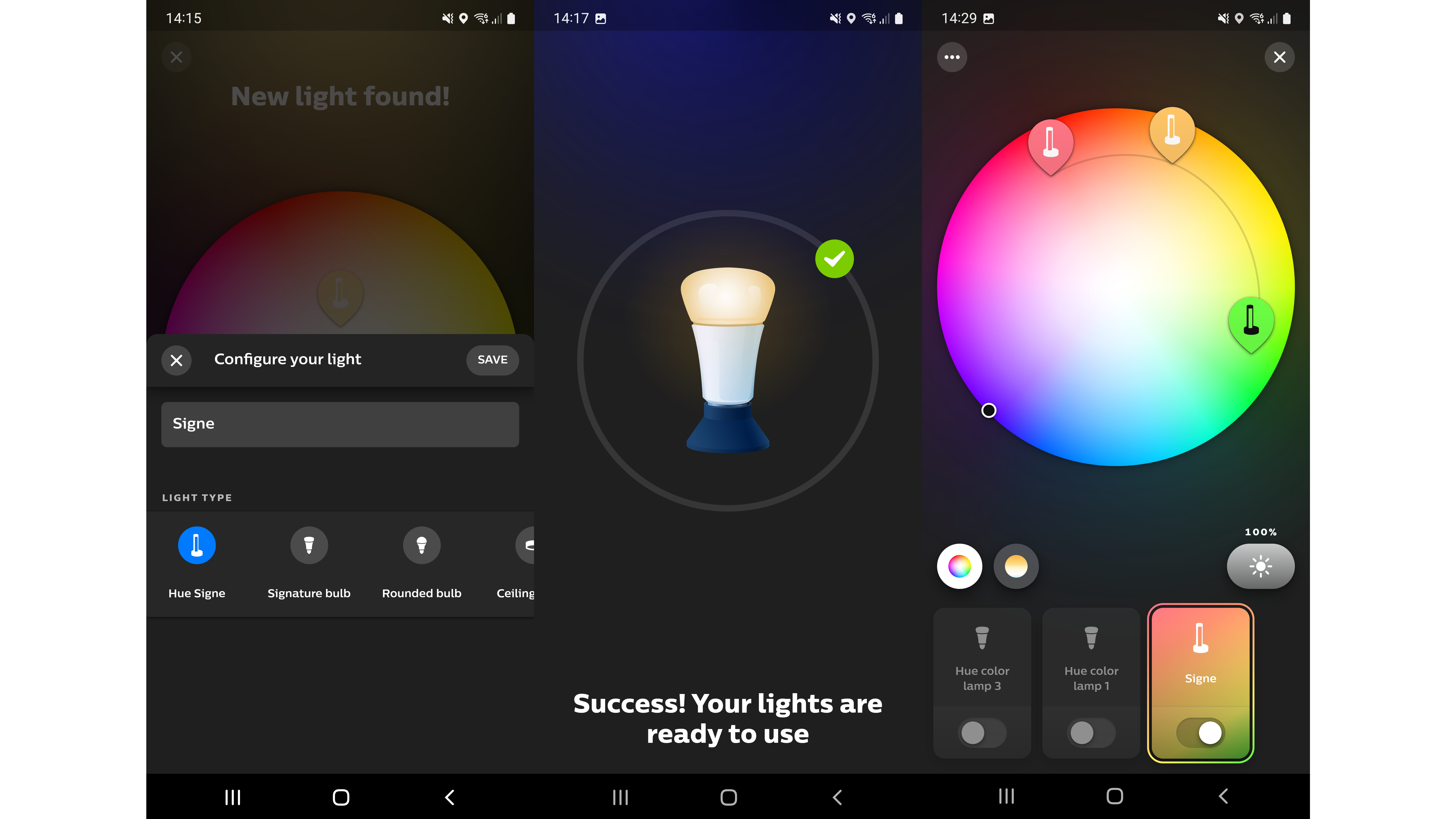
Setup is super fast and straight forward. Turn on the Gradient Signe, open the Hue app, then search for new lights.
The Philips Hue Gradient Signe Floor Lamp works when activated as a back-lit lighting bar that is split into a series of gradient lighting zones, which in turn can be configured in the app by pulling three separate light icons around on a color palette.
This lets you, say, have the top of the Gradient Signe blue, the middle red, and the bottom yellow, with a nice gradient transition between each color down the length of the light bar. You can also simply select Philips Hue scenes, such as Savannah Sunset, to have the bar display a curated lighting ambiance.
One thing you should know is that, boy, the Gradient Signe is bright. Even in the middle of the day, if you turned on the Gradient Signe and turned all its lights to bright white you could not stare at it. This is one powerful smart light.
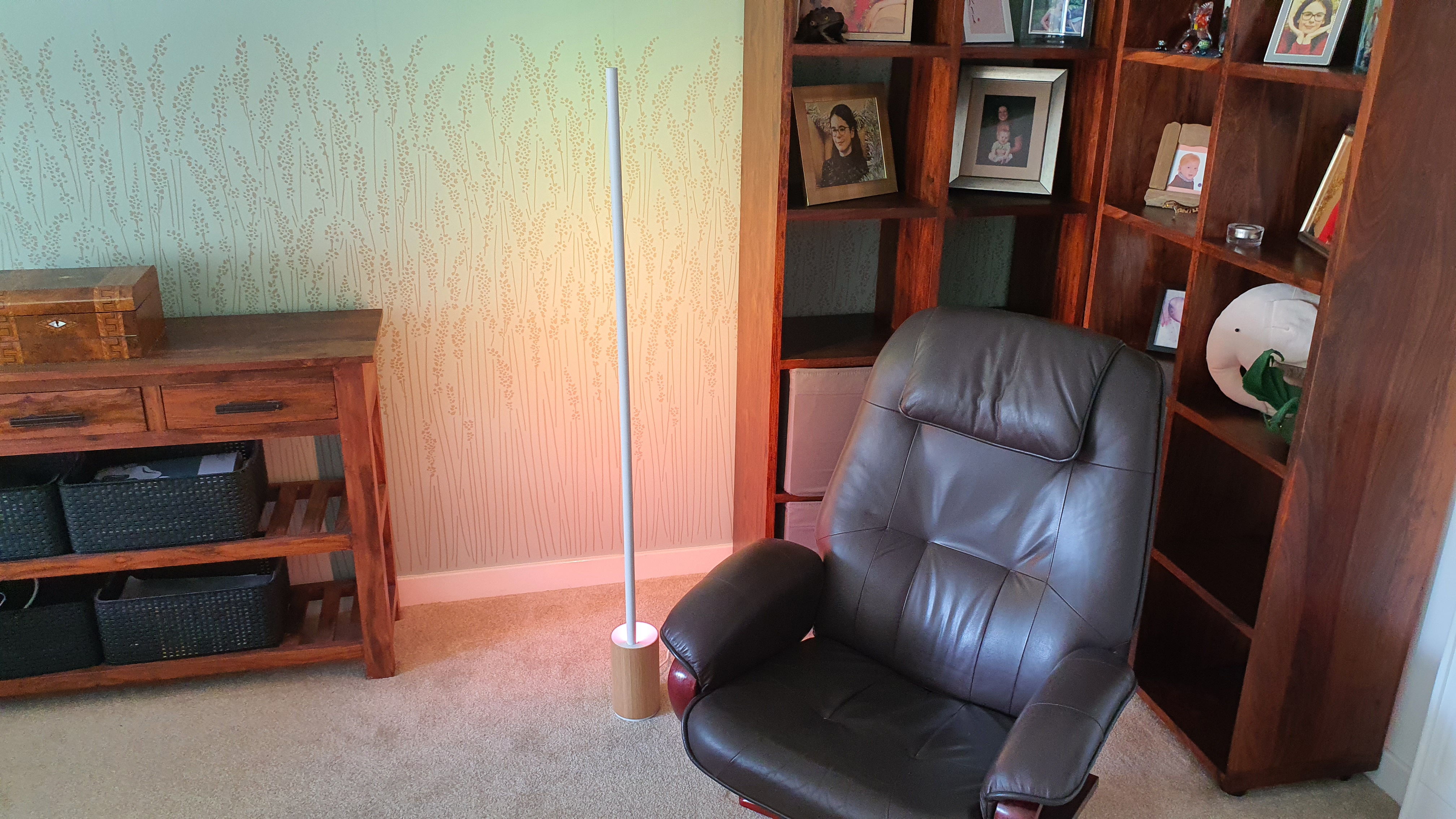
The Philips Hue Gradient Signe Floor Lamp in my living room during the day.
So at night time the Gradient Signe really pops. Imagine a lightsaber being lit up in a dark cave. And that's great for adding mood to rooms in the twilight hours or, excitedly for anyone who also invests in a Philips Hue Play HDMI Sync Box, incredible extra synchronized mood lighting for movies, TV shows, or playing video games.
A brace of these Gradient Signes in a home theatre setup and you're adding in a dump truck load of extra lighting immersion.
You do have to have somewhere to put the Gradient Signes, though, which is something that I found quite tricky without the Gradient Signe standing out in my home. From a design point of view, these lights excel, but that excellence demands they are positioned in an environment that plays to their strengths.
Philips Hue Gradient Signe Floor Lamp review: performance
In terms of performance, I was amazed at how easy the Gradient Signe was to set up and configure, as well as how powerful its lightbar was. As with other Hue lights, the Hue app also makes it very easy to download and implement formulas from Hue Labs, which makes programming the Signe to play out, say, a wake-up routine easy.
In all these ways Philips Hue has nailed the Gradient Lamp.
However, my experience with the lamp was not perfect. Firstly, unlike in the majority of the official press images for this product, there absolutely is a cable to power the lamp, so do think about how that will or won't trail from the cylindrical base in your setup area. Those who hate exposed wires need to think about this especially.
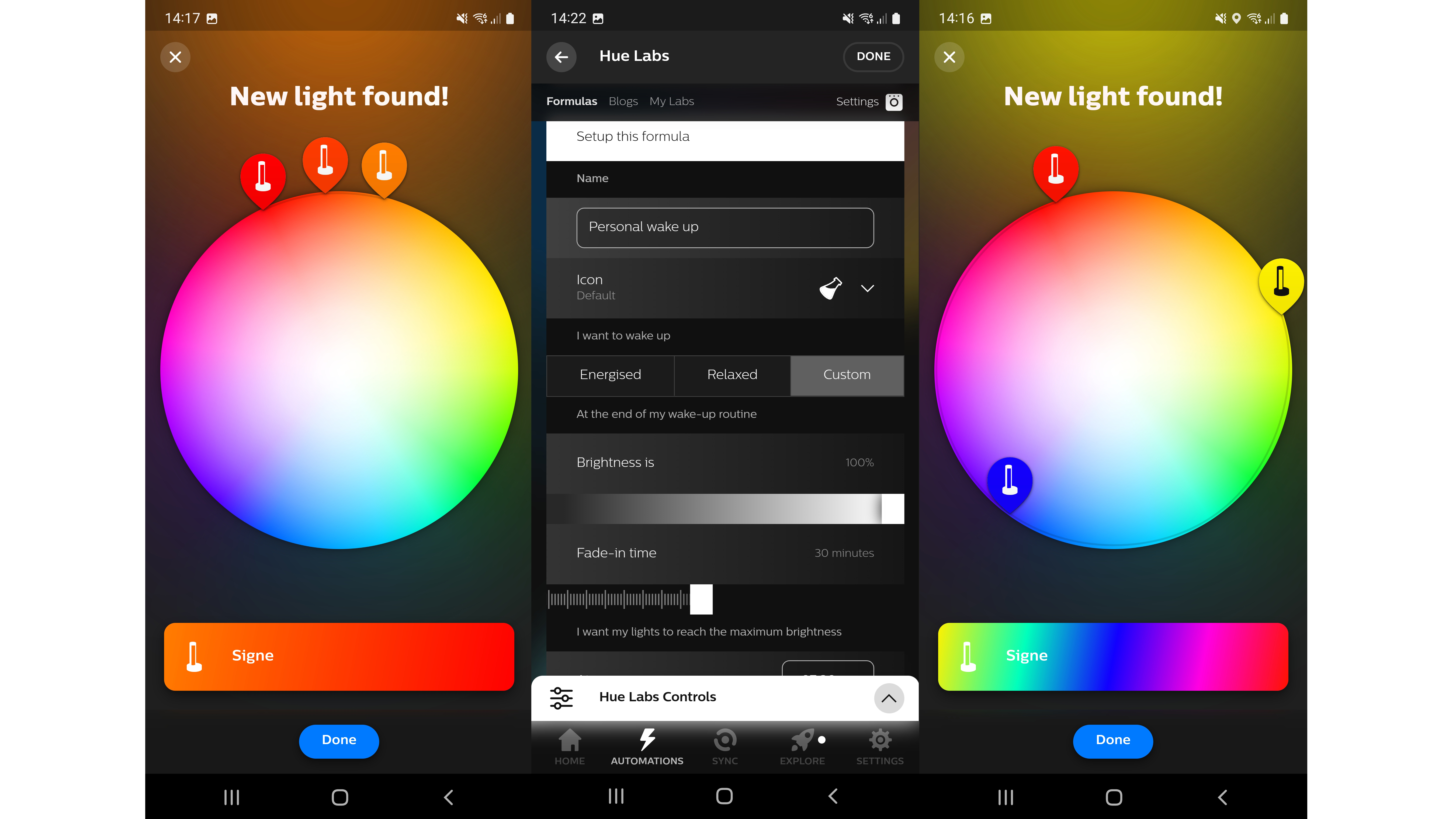
Customising the lighting on the Gradient Signe and establishing routines for it is easy.
Secondly, after setting up the Gradient Signe Lamp in a number of rooms in my home, including the bedroom, living room and my study, which are all carpeted, I noted that the cylindrical base did not sit firmly planted. The slightly springy nature of the carpet seemed to slightly overrule the stability of the base, meaning that even the smallest of prods would make it rock and look like it was about to fall.
Honestly, I think this product was designed to sit on hard floors, and in many of the press images for the Gradient Signe it is indeed shown on a hard (usually wood) floor. If your home is like this then you're fine, but I felt uneasy with it placed on my carpets. I've got a child and a cat and, honestly, I did feel that either could knock the Gradient Signe over easily on the carpet.
Basically, my feeling here is that the Gradient Signe's cylindrical base needs to be a bit heavier.
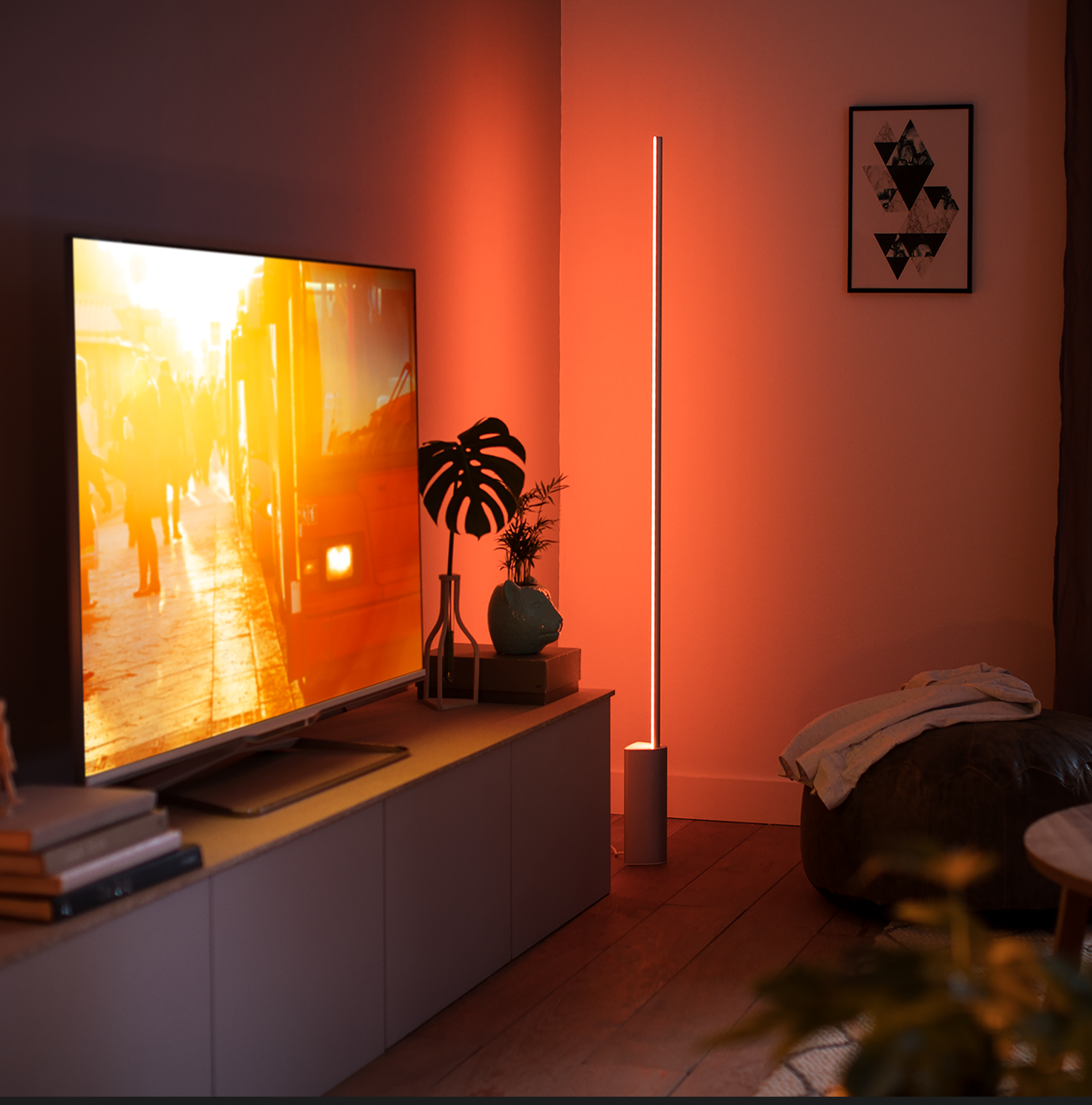
With a Philips Hue Play HDMI Sync Box installed you can sync the Philips Hue Gradient Signe Floor Lamp to the lighting on your TV.
Lastly, in terms of gripes, try as hard as I might I just couldn't get the Signe to look - at least in my opinion - at home in any of the rooms of my house. Maybe it was its proportions, or the fact that I don't have free corners in rooms with neutral white or off-white walls, or that it didn't really go with a lot of my furniture, but whatever it was I struggled to make room for it – and certainly so in a way that meant there wasn't a wire trailing too far across the carpet.
Also, this is not really a traditional lamp replacement, which radiates light out at all angles, but a back-lighter that is designed to cast colored lights on walls. So it couldn't really replace any lamps in my house, and I realized that aside from a corner behind my sofa and a slightly uncomfortable alcove between a bookcase and a cabinet in my living room, I didn't have a free space for it in the biggest room in my house.
I think, if you have big rooms with tall ceilings, hard floors and lots of neutral colored walls, then you're not going face these problems, though.
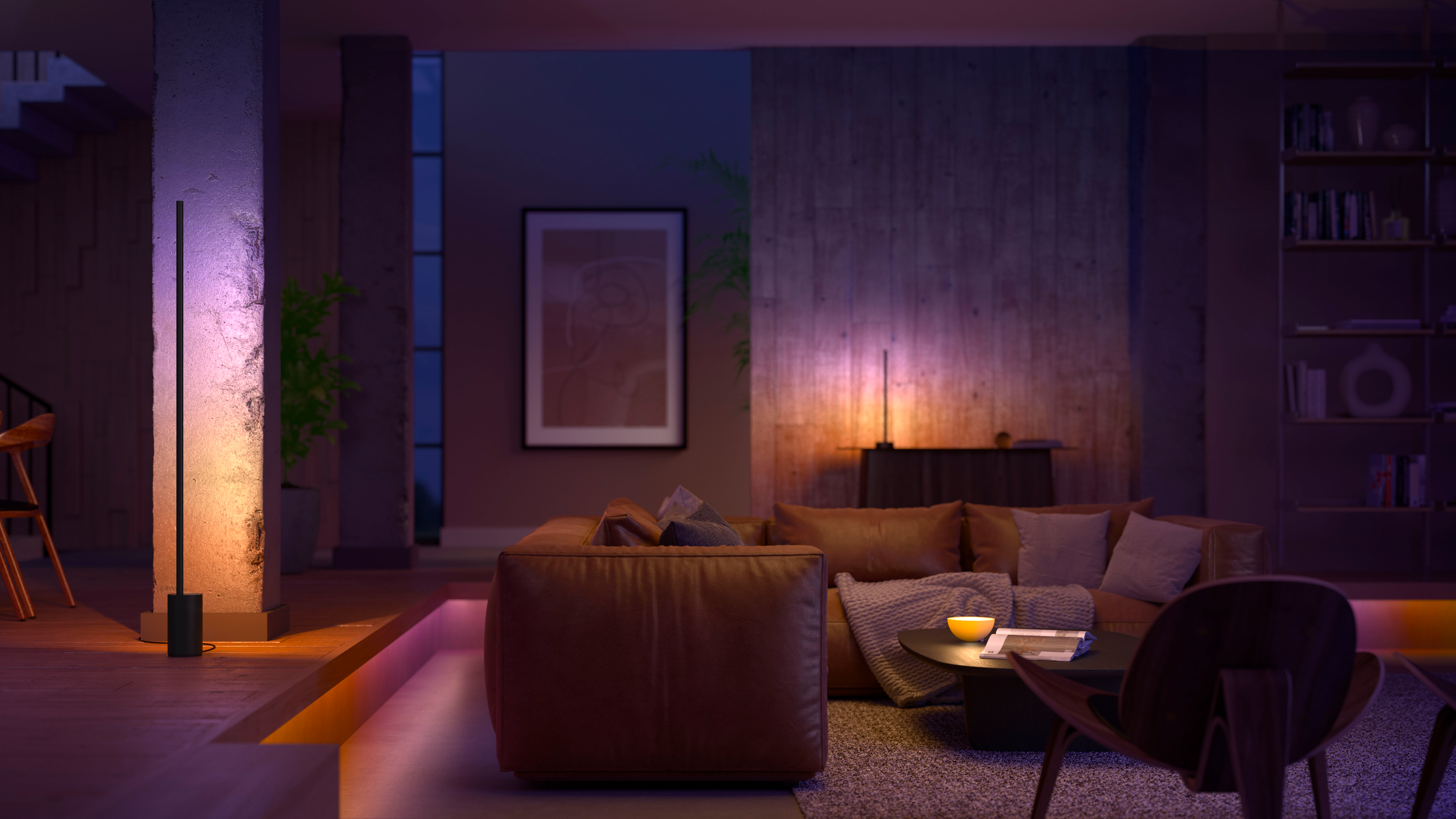
There's no doubting that the Philips Hue Gradient Signe Floor Lamp is very versatile.
Philips Hue Gradient Signe Floor Lamp review: verdict
Overall, then, I feel the Philips Hue Gradient Signe Floor Lamp offers a lot to potential buyers, and it is one of the most versatile smart lighting products that I've tested.
If you have a minimalist home with plenty of corners and walls that can benefit from colored, gradiated uplighting, then forget about it – this product is for you.
But, the Gradient Signe just didn't seem to naturally fit in with my home's aesthetic, which doesn't lean toward clean white walls and open spaces that I feel this lamp most suits. I've either got colored, painted walls or patterned wallpaper (see image above showing the grasses wallpaper in my living room as an example).
It is one of the most versatile smart lighting products that I've tested
For me personally, I think a pair of Gradient Signe's positioned behind my sofa, linked up to a Philips Hue Play HDMI Sync Box, would be where they'd fit in best physically, as they'd be ideal as powerful mood lighters for movies, TV shows and games.
Because, while the Gradient Signe worked brilliantly as a wake-up light, as an object I just couldn't make room for it in my bedroom. Meaning that it stood out and didn't blend into the room naturally. For you, though, it may fit in perfectly – it really come down to individual aesthetic preference and room layout.
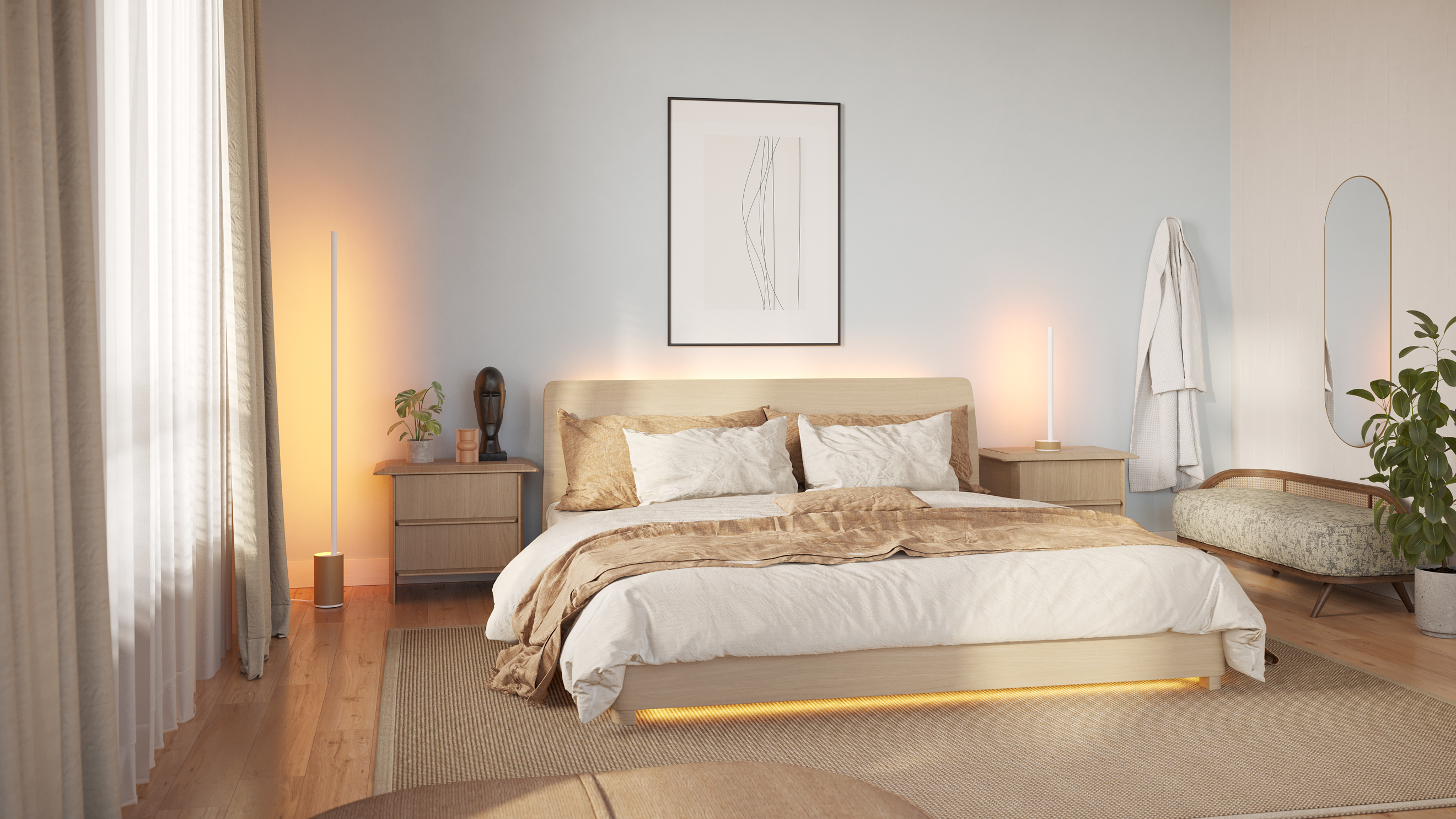
As a wake-up light the Philips Hue Gradient Signe Floor Lamp excels.
The other thing that made it feel like the Gradient Signe wasn't really for my home was that, on carpet, which is how the vast majority of my rooms are floored, the Gradient Signe did not feel planted and stable. It felt like the slightest knock would make it go tumbling over, which is something I'm guessing wouldn't be too good for its fragile-looking gradient light bar.
One look at the official Philips Hue images of the Gradient Signe pointedly show it placed in a series of rooms all on hard floors that aren't carpeted. Again, if you are this person, then the Gradient Signe will work great for you, but on my thick slightly springy carpets, it did not feel solidly planted. A small thing, sure, and if it is up a corner there is probably little chance it will be knocked over, but if you have pets or children, again I'd be worried about it being taken out.
To finish this Philips Hue Gradient Signe Floor Lamp review, though, I don't want to get too negative, as from a performance point of view I think it knocks it out of the park. The Signe is expensive, sure, but it delivers excellent levels of smart lighting that can be customized as you see fit, and be used for many different things, too.
Philips Hue market this product with that the phrase "minimal design, maximum light", and that is really accurate to what the Gradient Signe delivers. If you think that works for your smart home aesthetic, and can afford the entry cost, then I have no hesitation in recommending it as it is a great lighting product. But there are caveats for others, as I hope I have successfully communicated.
Sign up to the T3 newsletter for smarter living straight to your inbox
Get all the latest news, reviews, deals and buying guides on gorgeous tech, home and active products from the T3 experts
Rob has been writing about computing, gaming, mobile, home entertainment technology, toys (specifically Lego and board games), smart home and more for over 15 years. As the editor of PC Gamer, and former Deputy Editor for T3.com, you can find Rob's work in magazines, bookazines and online, as well as on podcasts and videos, too. Outside of his work Rob is passionate about motorbikes, skiing/snowboarding and team sports, with football and cricket his two favourites.
-
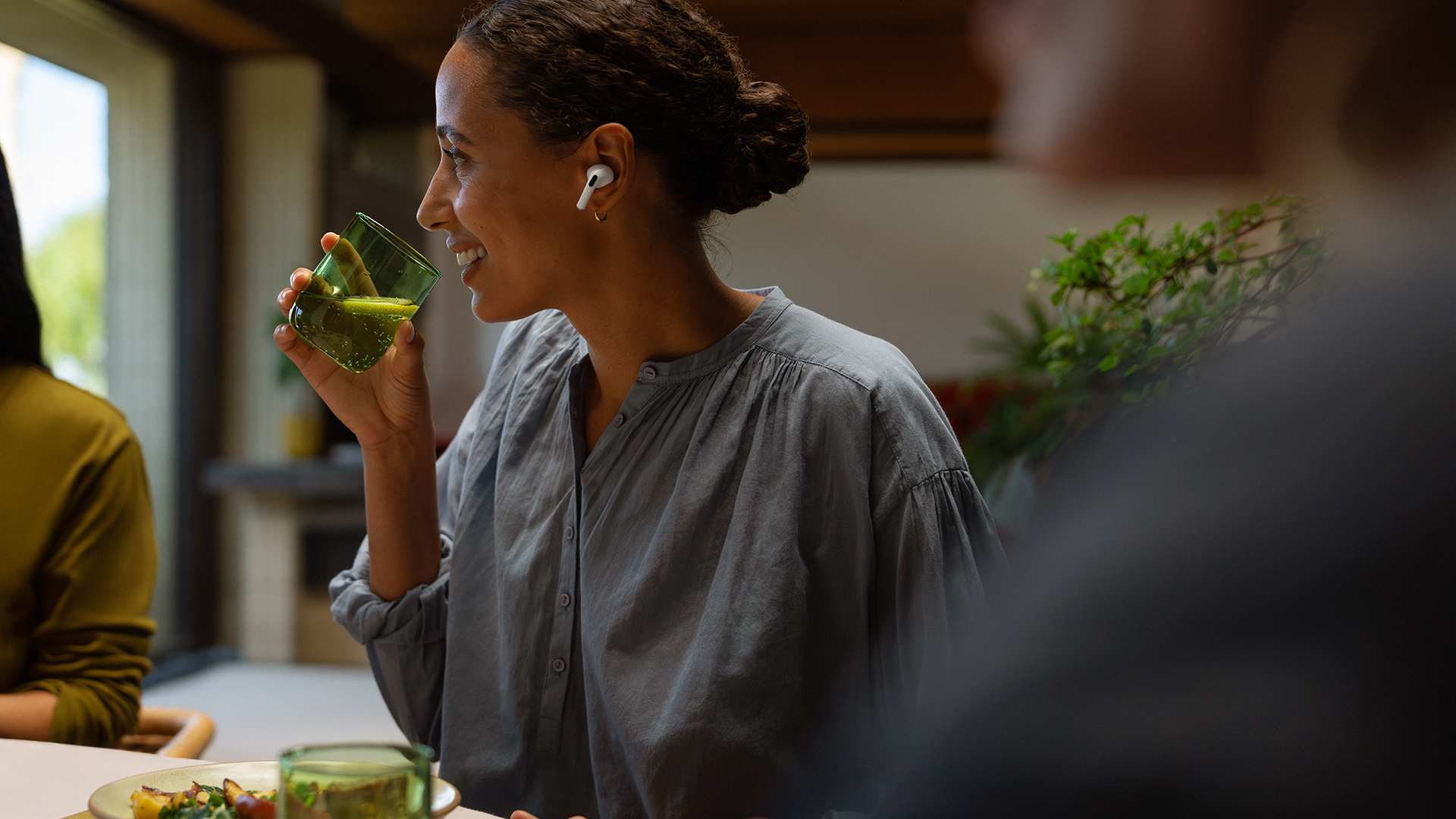 Leaked AirPods prototype looks like Nothing... literally
Leaked AirPods prototype looks like Nothing... literallyAnd we are here for them
By Britta O'Boyle Published
-
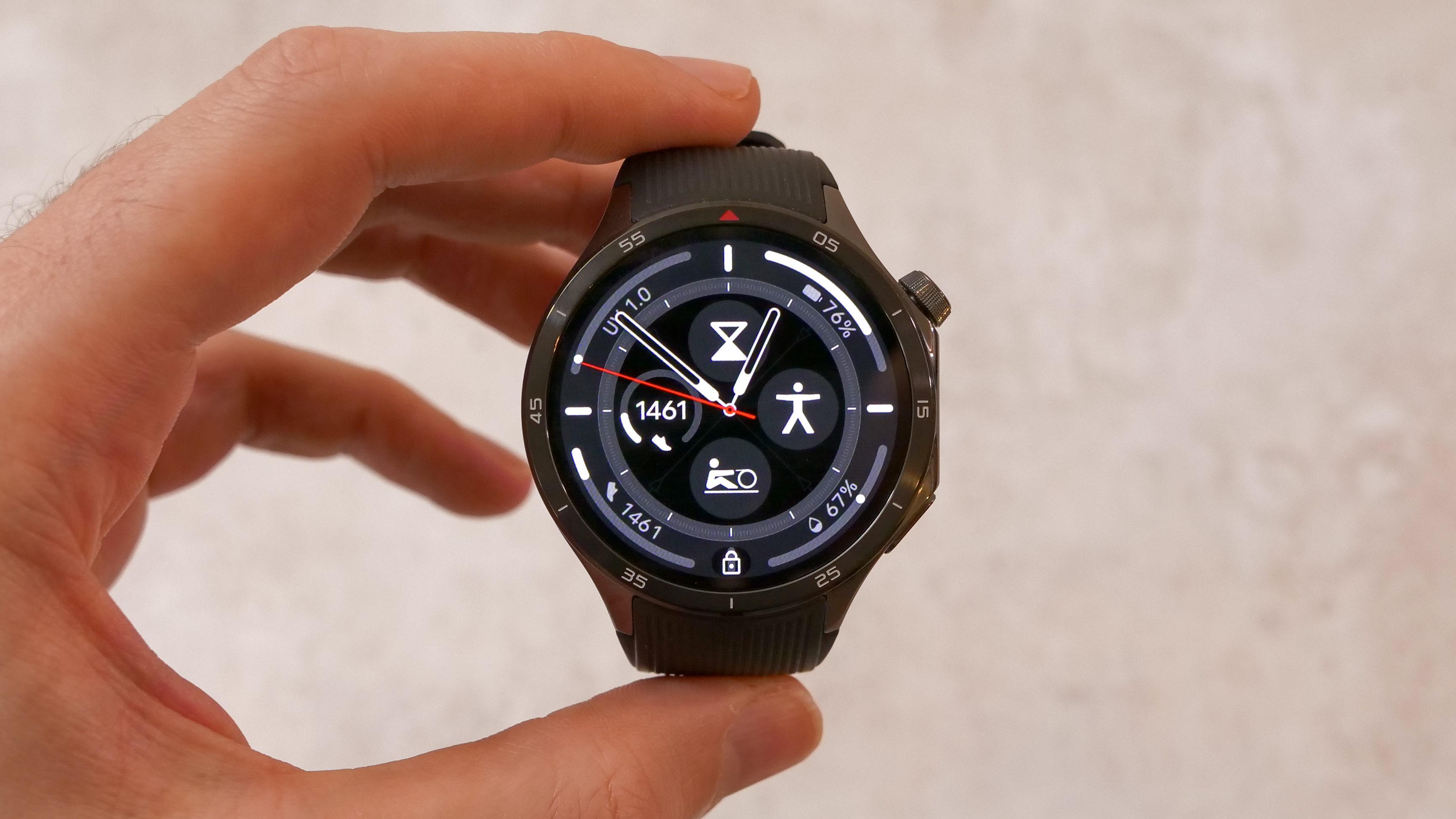 OnePlus Watch 3 lands in the UK with a flurry of freebies and a huge discount
OnePlus Watch 3 lands in the UK with a flurry of freebies and a huge discountThe new titanium-clad smartwatch brings 120-hour battery life, ECG health checks, and some serious launch offers
By Matt Kollat Published
-
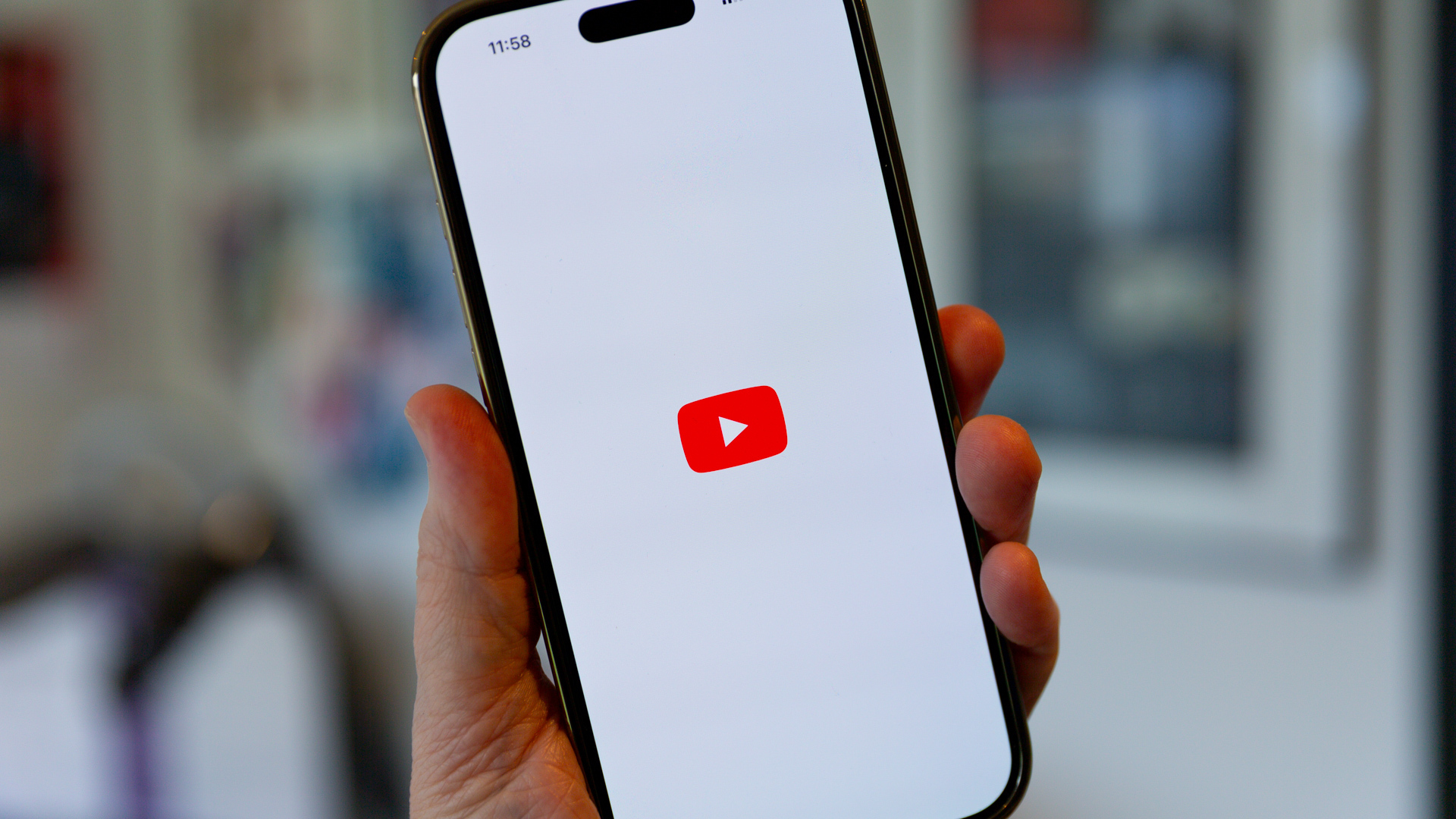 Future YouTube feature could put an end to your doomscrolling
Future YouTube feature could put an end to your doomscrollingAnd that's something we would love to see
By Britta O'Boyle Published